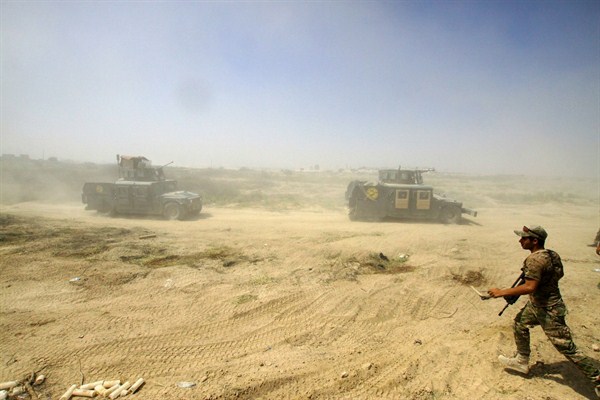A nation must think before it acts.
In the summer of 2014, the Obama administration found itself between a rock and a hard place. The Islamic State had just swept through northern Iraq, decimating the American-trained Iraqi army left to keep the peace after the U.S. withdrawal. Islamic State foot soldiers executed Iraqi troops and commandeered their American weapons, growing stronger and better equipped as they passed through each town.
The U.S. had few options to counter the Islamic State’s rise. Having just vacated Iraq in 2010, any thoughts of a massive military deployment returning to the Middle East to win back Sunni “hearts and minds” would not be palatable. All previous Sunni Awakening partners from the U.S. surge in Iraq had found new suitors. Disenfranchised by a Shiite-dominated central government in Baghdad increasingly aligned with Iran, some embittered Iraqi Sunnis saw the Islamic State as a more appealing option than the status quo.
The U.S. chose an alternative plan: build an international coalition bringing together targeted airstrikes with special operations liaisons embedded in proxy forces. Despite setbacks and missteps, this strategy has slowly rolled back the Islamic State. Just last week, the Iraqi army reclaimed Fallujah, which the Islamic State took over in early 2014. U.S.-backed forces in Syria have also surrounded the Islamic State in Manbij, while Kurdish forces—the shining stars of the international coalition—sit within sight of the Islamic State’s capital of Raqqa. But while progress against the Islamic State has been steady, it has also been slow—too slow for many as they watch the group’s seemingly unending atrocities…
Continue reading, “Why Does Progress Against ISIS in Iraq and Syria Feel Like Defeat?”




